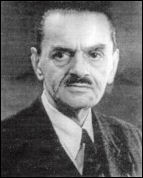Solowij, Volodymyr [Володимир Соловій] – active figure in political affairs; born on 26 February 1892 in Lviv (Ukraine; at that time – Austro-Hungarian province of Galicia); died on 15 November 1958 in Montreal, Quebec, Canada; buried in Saint-Sauveur near Montreal.

Solowij attended gymnasium secondary schools in Lviv and Kraków, and also Abbotsholme School in Staffordshire, England. Shortly before the outbreak of the First World War he began studies in law and agriculture at the University of Wrocław. During the war he served in the Austrian army (in a unit of the 13 Galician Cavalry Regiment composed largely of Ukrainians) and was taken prisoner by Russian forces. In November 1918, with the outbreak of war between the Western Ukrainian People’s Republic (ZUNR) and Poland, he enlisted in the army of the ZUNR. In 1919-1920 he served as counsellor of the diplomatic mission of the Ukrainian People’s Republic (UNR) in Denmark. Returning to politics at the end of the 1920s, he became active in the Ukrainian National Democratic Alliance (UNDO) and was a keen promoter of the normalisation of Ukrainian-Polish relations. In 1935 he was the UNDO candidate for the Sanok-Krosno-Lisko constituency in the election to the Sejm (Diet) of the Polish Republic, but was not elected.
At the outbreak of the Second World War Solowij enlisted in the Polish Army and was assigned to the political department of the military staff. He left Poland for Romania and then Paris. There he established contact with the UNR government in exile and became vice-chairman of the Ukrainian Committee formed by the UNR government. In October 1939 he visited London and, through the mediation of Vladimir Kaye (Kysilewsky), provided the British Foreign Office with infоrmation about the situation of Ukrainians on the territory of Poland which was occupied by the Red Army, and about plans for the organisation of a liberation struggle. In January 1940 he held negotiations in Rome with representatives of the Organisation of Ukrainian Nationalists (OUN) aimed at persuading the OUN to join the Ukrainian Committee in Paris.
He was subsequently mandated to go to London as a representative of the UNR government in exile to seek support for Ukraine from the Western Allies. In the second half of 1940 he travelled to Lisbon, where he sought to obtain a UK entry visa, and finally arrived in London in the summer of 1941. He maintained relations with the Polish Government in London as an informal spokesman on Ukrainian affairs. On several occasions in 1943 and 1944 he made representations to the Polish authorities regarding the situation of Ukrainian and Belarusian soldiers in the Polish Armed Forces under British command, and in September 1944 visited Ukrainians serving with the Polish forces stationed in Scotland. In 1945 he was involved in the formation of the Association of Ukrainian Soldiers in the Polish Armed Forces, the predecessor of the Association of Ukrainians in Great Britain. He was a secretary of the Central European Federal Club in London. In 1952 he emigrated to Canada where he joined the administrative staff of Sir George Williams College (now part of Concordia University) in Montreal.
Bibliography
Knysh, Z., Bie Dvanadtsiata. Spohady i materialy do diiannia OUN naperedodni nimetsko-moskovskoi viiny 1941 r. (Toronto, 1963?), chapter IV
Zięba, A., 'Solowij Wlodzimierz Pawel (Wołodymyr Pawło)' // Polski Słownik Biograficzny (Warszawa - Kraków, 2000-2001), T. XL, pp. 340-341